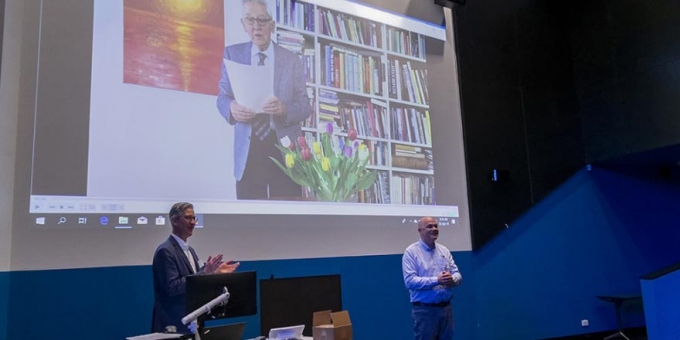“If I have a beer on an empty stomach, the result is going to be vastly different to when I have a beer on a full stomach,” said Dr Willem van Meurs, a medical training simulator designer visiting The Australian National University (ANU).
“The inputs are the same, but the outcome is very different.”
This was how van Meurs, an electrical engineer, explained to a conference of healthcare professionals the effect that time-variant, non-stationary systems can have on a system response.
He was speaking at the 2019 conference on Applied Modelling in Acute Care, held at ANU in early April. Where researchers highlight the beneficial relationship between systems engineering and healthcare.
Announced at the conference was a new joint initiative between the ANU College of Health and Medicine and the ANU College of Engineering and Computer Science. The initiative will bring together different ways of thinking about systems that connect futuristic technology to real world medicine.
“Professor Elanor Huntington and I are pleased to be funding new cross disciplinary research focusing on systems thinking in health and medicine,” said Professor Russell Gruen, Dean of the College of Health.
“This exciting new discipline is critical to connect the dots, and to design the health systems of the future, using a systems thinking approach.”
Initial funding from the two Colleges will enable new joint academic positions, including two postdoctoral positions.
The conference also honoured two College of Engineering and Computer Science academics, for novel ways of applying systems thinking to the medical field. Associate Professor Hanna Suominen was awarded the Jan Beneken Prize for her presentation on machine learning and natural language processing to find relevant health information when it is needed.
Dr Nicolo Malagutti was also awarded the Nicolaas Westerhof Prize for his presentation on open-loop real-time estimation of individual pharmacokinetic-pharmacodynamic response parameters using particle filtering.
Read the article on the College of Health and Medicine page here.

